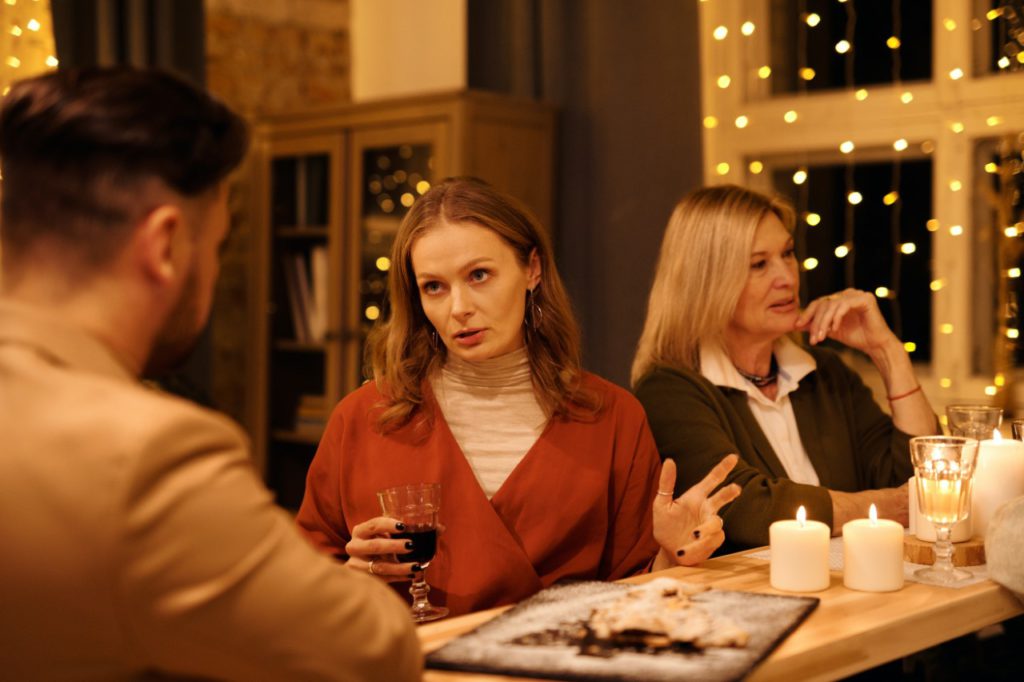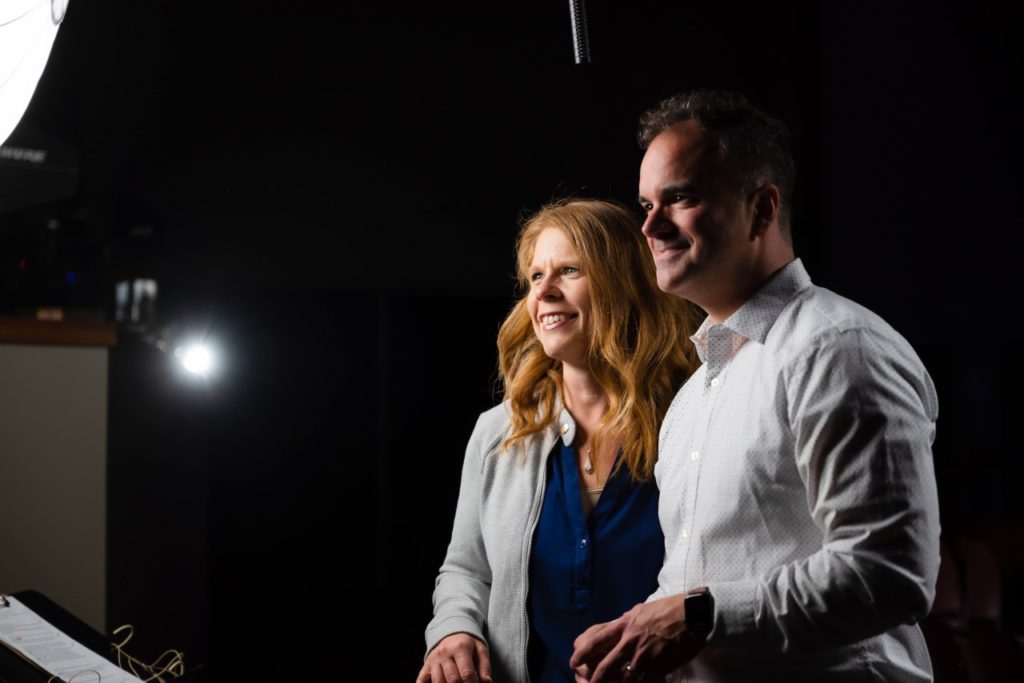Creating an Exit Strategy to Overcome Grief Through the Holidays
Creating an Exit Strategy to Overcome Grief Through the Holidays
Categories: AACC BLOG
by Ashley Elliott, MS, LMHCA, and Chuck Elliott, MOL, MAE

We’ve all been there, wishing we could tap into an unknown superpower and teleport away from a difficult conversation. When this happens during a holiday gathering soon after facing loss, we might bite through our lip or stare into oblivion as we stay and absorb stories that compound our pain and remind us that we’re not okay.
Then, we may choose to isolate. What drives isolation? Mostly, it is a protective response. When we engage in relationships, sometimes it hurts. To avoid pain, we may see isolation as the safest alternative. In a little bit, we’ll provide some Biblical examples to help correct our thinking. For now, let’s take a closer look at some common holiday experiences.
Has Christmas music triggered negative emotions, have you felt tempted to avoid holiday gatherings, or in an angry state, did you determine to avoid decorating this year? If so, could you lean in for just a moment, asking yourself why it’s so painful? If your heart aches because it’s your first holiday season unemployed, as a widow, or a divorcee, it makes sense that you’re struggling. There are many other reasonable explanations for having a tough time. Yet many people choose to isolate after facing loss. But we propose another way. Perhaps you could commit to going to a Christmas event with an exit strategy.
An exit strategy is a self-care plan that can be utilized to help anticipate your needs before attending an event. Being aware of potential triggers, you can learn to recognize the triggers as a cue to leave rather than to implode or explode.

For example, if you frequently feel overwhelmed by political conversations during holiday events, visualize what action will most help you support yourself. Perhaps you could excuse yourself if someone begins to speak about the topic. In this example, the political conversation has been a trigger. Adding grief to the equation makes it feel unbearable to contribute to those types of conversations. The exit strategy enables you to reframe the trigger from simply evoking strong emotion to also reminding you that you’re free to excuse yourself. Now, consider the ways an exit strategy could be used to create a STAY strategy. In addition to excusing yourself from the event or conversation if someone brings up the next election, perhaps before the party, you could ask a key person to avoid talking about political matters when you’re together during the holiday event. Or you could plan to sit at the kids’ table this year. Leaning into your needs reveals more than one option is available, and the exit strategy may enable you to stay, to connect, and to heal.
Consider Jake’s situation. In March, his wife was killed in a car accident. It was his first Christmas without her. When he arrived at his mom’s house to celebrate the holiday, he noticed that Christmas music filled every crevasse of the room and the high-pitched voices of his nieces and nephews echoed through the home. Jake felt frozen, calloused. He didn’t feel like celebrating, and frankly, it made him mad that everyone was so cheery when he was grieving. Jake’s mom walked over with her dog and offered a doggy kiss, saying “Cheer up, Jake! It’s Christmas.” A little while later, he decided to walk outside to cool off, but another person called to him and said, “Get back here! June is opening her presents; you don’t want to miss it!” Jake stayed but felt his temperature rise. He was angry, and he felt controlled. He was hot and wanted to cool down by stepping outside. But then he remembered he had made an exit strategy, so the trigger reminded him that he needed to take care of himself. He leaned over to June and whispered, “I’ll try to be back in two minutes if you want to wait for me. If not, I’ll catch the next one.” Jake stepped outside and sighed. He felt like he could scream, hit something, or cry. But instead, he just breathed. After a few minutes, he gathered himself and prayed, “God, I invite you into my negative spaces, my grief, and these difficult moments. I want to celebrate Jesus’ birth and the family I have left. But I need Your help. Equip me to take care of myself so I can represent You well, even in my grief. Amen.”

Most people don’t actively create a plan that will help them escape if they begin to feel overwhelmed. However, creating an exit strategy may in fact enable you to lean in and connect with friends and family members over the holiday season, choosing connection over isolation, choosing God’s way over your own protective plan.
As Christ-followers, it’s important to note that God is a God of community (Lev. 23:1-2, 2 Kings 4:1-7, Matt. 28:19-20, Luke 10:1, 1 Cor. 8:6, 1 Cor. 10:17, 1 Cor. 12:12-27). Our methods of self-protection are frequently contrary to God’s prescription for us. He urges us to take up His armor (Eph. 6:10-18). If we are protected with the belt of truth and the shield of faith, we will not need our insufficient defense mechanisms that lead us to deny, isolate, or withhold communication about our pain. God is sufficient.
As you contemplate this year’s holiday traditions, give yourself the freedom to feel what you need to feel in God’s presence. Turn on a worship song. (We recommend the song, “Something Has to Break” by Red Rocks Worship and Essential Worship). Tell God what you feel. He hears you. He’s near (Ps. 34:18, Ps. 94:7-11, Hosea 7:2, Rom. 8:35-37). He will help you understand your needs and take care of yourself while leaning into community.

Chuck and Ashley Elliott are authors and content creators who have partnered with YouVersion, RightNow Media, and other international organizations to equip people to build spiritual and relational success. Chuck, as a pastor, and Ashley, as a counselor, have devoted their lives to helping people fight negativity and leave a legacy. They are advisory board members for the AACC’s International Christian Coaching Association (ICCA) and have earned master’s degrees in counseling, education, and organizational leadership. Chuck and Ashley live in Indiana with their three sons.
